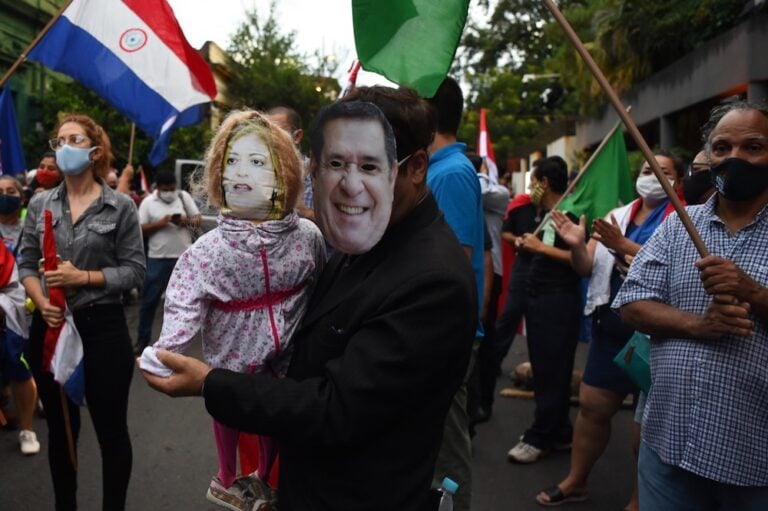(SPP/IFEX) – On 11 May 2000, Santiago Canton, Special Rapporteur for Freedom of Expression of the Inter-American Commission on Human Rights (IACHR), presented the 1999 Annual Report on Freedom of Expression in the Americas to the Organization of American States (OAS). The report includes details about the observer missions that have taken place (one of […]
(SPP/IFEX) – On 11 May 2000, Santiago Canton, Special Rapporteur for Freedom of Expression of the Inter-American Commission on Human Rights (IACHR), presented the 1999 Annual Report on Freedom of Expression in the Americas to the Organization of American States (OAS). The report includes details about the observer missions that have taken place (one of which went to Paraguay in July 1999) and material advances in freedom of expression which have been observed in Latin America.
Paraguay was not mentioned among the countries which have recorded material progress in promoting freedom of expression, particularly as relates to the points analyzed by Canton during his visit to the country.
Canton was in Paraguay at the end of July 1999, as a delegate of the Inter-American Commission for Human Rights. After holding interviews with various sectors linked to the Paraguayan media, including the SPP, he released a communique.
In the annual report, the Special Rapporteur cites only Panamá and Argentina as Latin American countries which have recorded material progress in advancing freedom of expression.
The wide-ranging 1999 report includes the communique that was released at the end of Cantonâs visit to Paraguay. It is important to mention one of the points that he raised: “The Rapporteur received information about the lack of progress in the investigation into the April 1991 assassination of journalist Santiago Leguizamon. The Rapporteur urged the Paraguayan authorities to acelerate their investigation into the assassination, and to punish the material and intellectual authors of the crime. In particular, the Rapporteur reiterated the Commission’s doctrine that the assassination of a journalist is the most brutal form of restricting freedom of expression”.
In another part of the report, Canton noted that he received information about the situations of columnist Ricardo Canese and journalist Dolly Galleano as a result of conflicts they were involved in.
He also noted the cases of harassment and possible pending censorship by a judge in the City of Villariaca against journalists Secundino Silguero and Norma Acuña from Radio Panabà Verá, after their disciplinary arrest for having criticized a decision issued by the judge.
Canton’s report emphasized that: “The Rapporteur will follow each of these judicial actions carefully, and reminds the authorities that one of the principal concerns of the Rapporteur throughout a number of countries in the hemisphere is their use of the judicial system as a means of intimidation, the imposition of prison terms or fines on journalists, the obligation of journalists to permanently follow the courtsâ orders, and the cost of defence which significantly prejudices their activities. When these measures are used against journalists who are critical of the authorities, the judicial system is being used as an instrument for limiting freedom of expression, and not as a means to resolve issues between the authorities and journalists”.
It is important to emphasise that Cantonâs points related to Paraguay do not resolve the concerns mentioned, beginning with the crime against Leguizamon, which has gone unpunished for nine years.


